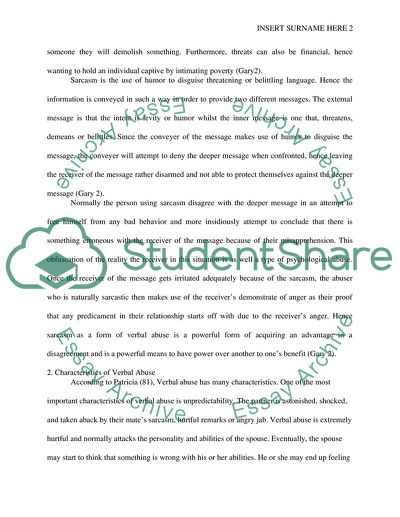Cite this document
(“Verbal abuse in relationships Essay Example | Topics and Well Written Essays - 2500 words”, n.d.)
Verbal abuse in relationships Essay Example | Topics and Well Written Essays - 2500 words. Retrieved from https://studentshare.org/miscellaneous/1635251-verbal-abuse-in-relationships
Verbal abuse in relationships Essay Example | Topics and Well Written Essays - 2500 words. Retrieved from https://studentshare.org/miscellaneous/1635251-verbal-abuse-in-relationships
(Verbal Abuse in Relationships Essay Example | Topics and Well Written Essays - 2500 Words)
Verbal Abuse in Relationships Essay Example | Topics and Well Written Essays - 2500 Words. https://studentshare.org/miscellaneous/1635251-verbal-abuse-in-relationships.
Verbal Abuse in Relationships Essay Example | Topics and Well Written Essays - 2500 Words. https://studentshare.org/miscellaneous/1635251-verbal-abuse-in-relationships.
“Verbal Abuse in Relationships Essay Example | Topics and Well Written Essays - 2500 Words”, n.d. https://studentshare.org/miscellaneous/1635251-verbal-abuse-in-relationships.


